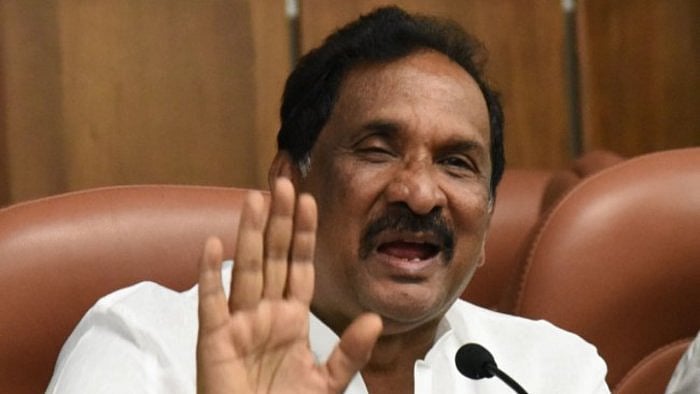
Karnataka Energy Minister K J George has been busy resolving concerns around the power tariff hike and implementation of the ‘Gruha Jyothi’ scheme since he took charge. As confusion fades out and the scheme’s implementation begins, he spoke to Sneha Ramesh of DH about the government’s long-term plans for the energy sector and how privatisation may not be a good option. Edited excerpts from the interview:
There was much confusion about the ‘Gruha Jyothi’ scheme. Have all concerns been addressed?
There were some teething problems and they have been addressed. The server capacity has been increased to handle the huge turnout and the system has stabilised. We have also released guidelines for every category of consumers. However, people have been asking if there is a deadline. There is no deadline to apply for the scheme and we will ensure everyone gets the benefit.
There are demands that the power tariff hike be rolled back. Is the government looking at it?
The tariff was not hiked by our government and the KERC is an autonomous body. While those who use less than 200 units will be insulated owing to the scheme, we have to see how we can help industrialists and other consumers. Following a meeting with the industry bodies, the chief minister has asked us to prepare a detailed proposal. We cannot promise a rollback, but we will see what can be done.
Industries have demanded that the electricity tax be reduced.
The electricity tax is not high and it is the arrears that resulted in a steep rise in the June bill. We have given them the option to pay arrears in instalments.
Even though Karnataka is a power surplus state, complaints of power cuts continue to pour in. Most of these are attributed to poor infrastructure. What are your plans to provide uninterrupted power supply?
Escoms are improving their infrastructure continuously, but it’s a capital-intensive task and takes time. Mostly, rural areas experience power cuts and we will soon start workshops and awareness campaigns to encourage farmers to utilise solar energy for running irrigation pump sets. Their dependency on the state grid will then come down.
The National Electricity Plan talks about a surge in demand for power across the country. What scenario do you see for Karnataka and how prepared are we?
Karnataka is growing rapidly and attracting a lot of investments, including foreign direct investment. The demand for power will definitely go up. We are drafting an action plan to meet the growing demand and will focus on moving towards green energy. Many innovative ideas floated during the previous Congress government will be implemented now.
Where does Karnataka stand in clean energy generation and what are the focus areas?
At the international level, there are serious discussions about switching to green energy owing to the impact of global warming, and at the national level, policies are being framed. Karnataka is among states leading the pack in implementing clean energy projects. We want to encourage farmers and industrialists to set up solar panels on their land.
The central government provides a subsidy on such installations and we will soon start a dialogue with stakeholders and see if we can assist them in any way. We are also exploring how we can improve the generation of hydel and wind energy. We want to bring down dependency on conventional thermal energy.
Over the last few years, there have been debates over the privatisation of Escoms. What is your opinion?
I don’t think privatisation is the answer to everything. Escoms are autonomous bodies. They should work like corporate companies running a business. If they are able to work like a corporate company with consumer-centric initiatives, there will be a great improvement in efficiency.
There have been multiple instances of Escom officials caught by Lokayukta police taking bribes. There are also corruption charges. How do you plan to bring this down?
I strongly believe that people should also bribes and resist as much as possible. They should come forward and expose corrupt officials. We are looking at technological advancements to reduce human interference. This way, corruption will come down eventually.
